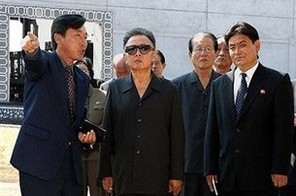US offers to talk directly to NK
WASHINGTON: In a policy shift, the Obama administration said it is prepared to hold direct talks with North Korea in a bid to bring Pyongyang back to six-nation nuclear disarmament negotiations.
The administration which has conditioned talks with North Korea on Pyongyang's agreeing to return to a nuclear deal it quit in April made the offer after consulting partners China, South Korea, Japan and Russia, on Friday.
"We had consultations with our partners in the six-party process," Assistant Secretary of State Philip Crowley told reporters at the daily news briefing.
"We are prepared to enter into a bilateral discussion with North Korea, but it's important to characterize it properly," Crowley added.
"It's a bilateral discussion that (is) hopefully... within the six-party context, and it's designed to convince North Korea to come back to the six-party process and to take affirmative steps towards denuclearization," he said.
Crowley denied the move amounted to a significant policy change, but suggested it amounted to a tactical shift when he called it a "short-term" measure to bring the reclusive Stalinist state back to talks.
He said it is too early to say when and where envoys such as Stephen Bosworth, the pointman for North Korea in President Barack Obama's administration, and his deputy Sung Kim would meet their North Korean counterparts.
"Given the consultations that we have, given the invitation that was extended (from North Korea for direct talks), we'll make some decisions, you know, in the next couple of weeks," Crowley said.
He was referring to consultations that Bosworth had with his counterparts from China, South Korea and Japan during a tour of Asia in the last week. Kim stayed on in Asia to consult with his Russian counterpart.
Bosworth gave no hint of a change in plan when he spoke in Tokyo on Tuesday.
On August 25, State Department spokesman Ian Kelly said the United States would sit down with the North Koreans only if they agreed to return to six-party disarmament talks.
North Korea quit the six-way talks grouping in April in protest at UN censure of a rocket launch. The UN Security Council then tightened sanctions on North Korea after it staged an underground nuclear weapons test in May.
The United States has long said that any bilateral talks would come only within the framework of six-party talks, which also include China, Japan, Russia and South Korea.
The six-party consultations came after North Korea began to soften its posture recently and sought bilateral talks with Washington, while attempting to scrap the six-way talks aimed at ending its nuclear ambitions.
But Pyongyang said last week it had reached the final stages of enriching uranium and was also building more plutonium-based atomic weapons.
A senior State Department official told reporters on the condition of anonymity that "it will probably be Ambassador Bosworth" who meets with the North Koreans.
"I wouldn't say it's imminent, probably not before UNGA," the official added.
He was referring to the UN General Assembly (UNGA) meeting in New York at the end of September in New York. Secretary of State Hillary Clinton and Obama are expected to discuss North Korea there with their international partners.






